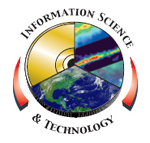
Please Note: The content on this page is not maintained after the colloquium event is completed. As such, some links may no longer be functional.
James Mackinnon
Detecting Wildfires in MODIS data using Deep Neural Networks
Wednesday, February 28,2018
Building 3 Auditorium - 11:00 AM
(Cookies at 10:30 AM)
Wildfires are destructive to both life and property, which necessitates an approach to quickly and autonomously detect these events from orbital observatories. This talk will introduce a neural network based approach for classifying wildfires in MODIS multispectral data, and will show how it could be applied to a future constellation of low-cost CubeSats. The approach combines training a deep neural network on the ground using high-performance consumer GPUs, and a highly optimized inference system running on a flight-proven embedded processor. Typically, neural networks execute on hardware orders of magnitude more powerful than anything found in a space-based computer, therefore the inferencing system is designed to be performant even on the most modest of embedded computing platforms. This implementation is significantly more accurate than previous neural network implementations, while also approaching the accuracy of the state-of-the-art MODFIRE data products.
James MacKinnon is a computer engineer at the NASA Goddard Space Flight Center in the Science Data Processing branch. He received both his B.S. and M.S. at the University of Florida. His most recent work includes developing the payload data processing FPGA design for the NASA-developed CeREs CubeSat, and being a principal investigator on an internal R&D project with the goal of designing a neural network for detecting wildfires from multispectral imagery. His expertise includes FPGA design for high-performance, space-based data processing systems, machine learning for science data, and reliable software design.
IS&T Colloquium Committee Host: Keith Keller
Sign language interpreter upon request: 301-286-7348
